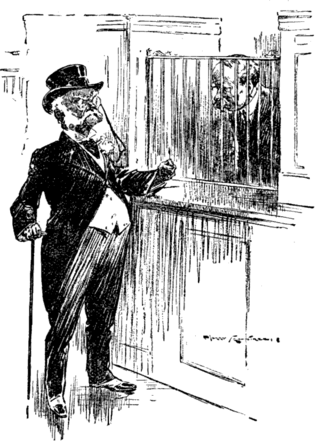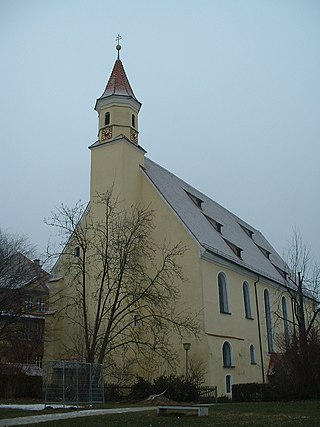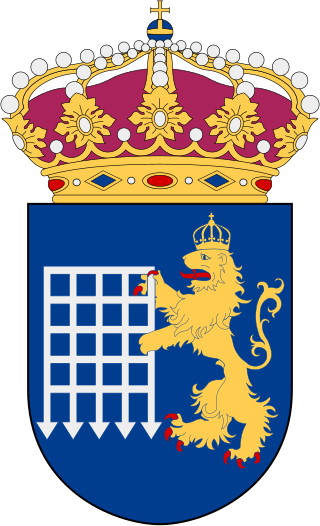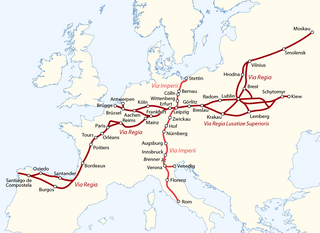Operation
The right of escort was, in the Middle Ages and Early Modern Period, before the emergence of modern statehood with its monopoly on violence, a means of ensuring legal certainty for travellers. An escort was guaranteed by the holder of the right in return for the payment of an escort fee (Geleitgeld). It was thus a popular source of income for the territorial lords. They were able to use their original military prowess and "sell" it for highly prized, hard cash, in an economy that, in the Late Middle Ages and Early Modern period, was overwhelmingly based on barter and natural produce. The boundaries between the regions of the individual escort lords (Geleitherr) were marked by escort crosses (Geleitkreuze) or stones (Geleitsteine).
To begin with, traders were accompanied by mounted escorts (Geleitreiter or Geleitknechte) or teams; later, the escort lord made out letters of authority (Geleitbriefe) that travellers could purchase. In such letters the road owner committed himself to damages if the tradesman suffered losses as a result of robbery; i.e. provided a sort of security insurance. Tradesmen were obliged to use certain paths or routes (a duty known as Straßenzwang). This duty did not apply, however, for all goods nor to other travellers.

Academic fencing or Mensur is the traditional kind of fencing practiced by some student corporations in Germany, Austria, Switzerland, Latvia, Estonia, and, to a minor extent, in Belgium, Lithuania, and Poland. It is a traditional, strictly regulated épée fight between two male members of different fraternities with sharp weapons. The German technical term Mensur in the 16th century referred to the specified distance between each of the fencers.

Lord of the manor is a title that, in Anglo-Saxon England and Norman England, referred to the landholder of a rural estate. The titles date to the English feudal system. The lord enjoyed manorial rights as well as seignory, the right to grant or draw benefit from the estate. The title continues in modern England and Wales as a legally recognised form of property that can be held independently of its historical rights. It may belong entirely to one person or be a moiety shared with other people. The title is known as Breyr in Welsh.
A protection racket is a type of racket and a scheme of organized crime perpetrated by a potentially hazardous organized crime group that generally guarantees protection outside the sanction of the law to another entity or individual from violence, robbery, ransacking, arson, vandalism, and other such threats, in exchange for payments at regular intervals. Each payment is called "protection money" or a "protection fee". An organized crime group determines an affordable or reasonable fee by negotiating with each of its payers, to ensure that each payer can pay the fee on a regular basis and on time. Protections rackets can vary in terms of their levels of sophistication or organization; it is not uncommon for their operations to emulate the structures or methods used by tax authorities within legitimate governments to collect taxes from taxpayers.
The ferme générale was, in ancien régime France, essentially an outsourced customs, excise and indirect tax operation. It collected duties on behalf of the King, under renewable six-year contracts. The major tax collectors in that highly unpopular tax farming system were known as the fermiers généraux, which would be tax farmers-general in English.

A traveller's cheque is a medium of exchange that can be used in place of hard currency. They can be denominated in one of a number of major world currencies and are preprinted, fixed-amount cheques designed to allow the person signing it to make an unconditional payment to someone else as a result of having paid the issuer for that privilege.

The Leibzoll was a special toll that Jews had to pay in most European states from the Middle Ages to the 19th century.

An overdraft occurs when something is withdrawn in excess of what is in a current account. For financial systems, this can be funds in a bank account. In these situations the account is said to be "overdrawn". In the economic system, if there is a prior agreement with the account provider for an overdraft, and the amount overdrawn is within the authorized overdraft limit, then interest is normally charged at the agreed rate. If the negative balance exceeds the agreed terms, then additional fees may be charged and higher interest rates may apply.
In the law of the Middle Ages and early modern period, especially within the Holy Roman Empire, an allod, also allodial land or allodium, is an estate in land over which the allodial landowner (allodiary) had full ownership and right of alienation.

A heerlijkheid was a landed estate that served as the lowest administrative and judicial unit in rural areas in the Dutch-speaking Low Countries before 1800. It originated as a unit of lordship under the feudal system during the Middle Ages. The English equivalents are manor, seigniory and lordship. The German equivalent is Herrschaft. The heerlijkheid system was the Dutch version of manorialism that prevailed in the Low Countries and was the precursor to the modern municipality system in the Netherlands and Flemish Belgium.

Söflingen Abbey was a nunnery of the Order of Poor Ladies, also known as the Poor Clares, the Poor Clare Sisters, the Clarisse, the Minoresses, or the Second Order of St. Francis. It was situated in the village of Söflingen, now part of Ulm in Baden-Württemberg, Germany. Being the oldest nunnery of this order in Germany, it was also its most important and most affluent.

The Swedish Customs is the customs service of the Kingdom of Sweden. It is a department of the Government of Sweden. It is one of the oldest governmental agencies in Sweden, as it was founded in 1636. It is also Sweden's de facto border guard.

The history of the Jews in Speyer reaches back over 1,000 years. In the Middle Ages, the city of Speyer, Germany, was home to one of the most significant Jewish communities in the Holy Roman Empire. Its significance is attested to by the frequency of the Ashkenazi Jewish surname Shapiro/Shapira and its variants Szpira/Spiro/Speyer. After many ups and downs throughout history, the community was totally wiped out in 1940 during the Holocaust. With the fall of the Iron Curtain in 1989 Jews again settled in Speyer and a first assembly took place in 1996.

In medieval times, imperial roads were designated routes in the Holy Roman Empire that afforded protection to travellers in return for tolls collected for the emperor.

In the kingdom of England, a feudal barony or barony by tenure was the highest degree of feudal land tenure, namely per baroniam, under which the land-holder owed the service of being one of the king's barons. The duties owed by and the privileges granted to feudal barons are not exactly defined, but they involved the duty of providing soldiers to the royal feudal army on demand by the king, and the privilege of attendance at the king's feudal court, the Magnum Concilium, the precursor of parliament.
Feudalism in the Holy Roman Empire was a politico-economic system of relationships between liege lords and enfeoffed vassals that formed the basis of the social structure within the Holy Roman Empire during the High Middle Ages. In Germany the system is variously referred to Lehnswesen, Feudalwesen or Benefizialwesen.
The road toll was a historical fee charged to travellers and merchants in return for permission to use the roads and waterways of the country or state concerned. It was reinforced in the Holy Roman Empire by the law of Straßenzwang which meant that traders in certain goods had to use specified roads. In return, they were usually guaranteed safe passage under the right of escort or Geleitrecht. The road toll was widespread especially in medieval times, and, in addition to the payments from the staple rights, was an important source of income.

A Landesburg or landesherrliche Burg was a castle that a territorial lord, such as a prince-bishop, duke or prince built for the defence or expansion of his sovereign estates. They were thus the central and most important castles of the great princely territories. The Landesburgen were usually the property of the territorial lord, but they sometimes referred to castles that he did not own, but were available to him as a safe house (Offenhaus). The large castles of the 8th to 10th centuries, east of the Rhine and outside the towns were often described as Landesburgen because they performed important functions in the control of the state.

Besigheim station is located at line-kilometre 29.8 on the Franconia Railway (Frankenbahn) in Besigheim in the German state of Baden-Württemberg. According to the Railway Construction and Operating Regulations, it is considered to be a Haltepunkt, not a station.

The terms landwehr, landgraben and landhege refer to border demarcations or border defences and enclosures in Central Europe that were either built by settlements with the right of enclosure or to mark and defend entire territories. These measures, usually comprising earthworks or dykes as well as ditches and impenetrable lines of hedging, for protecting towns and villages date mainly to the High and Late Middle Ages and consist, in some cases, of systems over a hundred kilometres long. Comparable earthworks have been recorded since Antiquity. The Roman limes are the best known examples of earlier landwehrs. The Danewerk is another example of this type of barrier.














